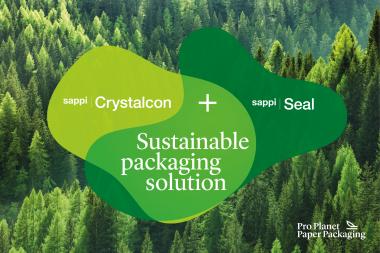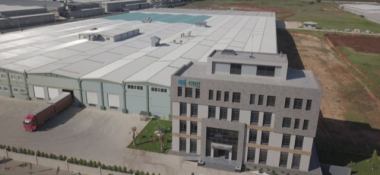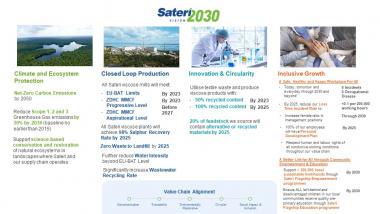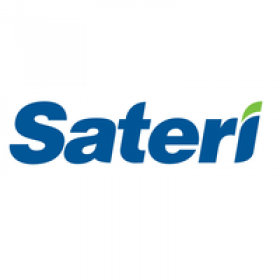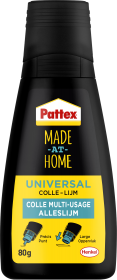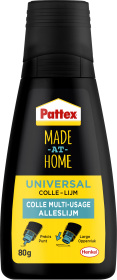Sappi erweitert sein Sortiment von nachhaltigen Verpackungspapieren
Mit Crystalcon, der neuen transluzenten Papiersorte, erweitert Sappi sein umfangreiches Sortiment von nachhaltigen Verpackungspapieren. um ein weiteres Produkt. Im Zusammenspiel mit dem heißsiegelfähigen Sappi Seal Silk liefern beide Materialien eine recyclingfähige und einfach umzusetzende Verpackungslösung für diverse Food- und Non-Food-Anwendungen.
- Die Transluzenz von Crystalcon ermöglicht Verbrauchern den direkten Blick auf den Verpackungsinhalt
- Keine zusätzliche Weiterverarbeitung oder Veredelung der Papiere ist notwendig
- Von Süßigkeiten, über Briefumschläge bis Magazine: eine nachhaltige Verpackungslösung, geeignet für den Food- und Non-Food-Bereich
Hersteller stehen aktuell vor einer Herausforderung: Verbraucher wünschen sich zunehmend nachhaltigere Verpackungslösungen. Gleichzeitig möchten sie beim Gang durch die Supermarktregale den Produktinhalt direkt begutachten können. Oft werden für derartige Verpackungen jedoch ganz oder teilweise Folien eingesetzt.
Nachhaltige Verpackungslösung mit Crystalcon und Seal Silk
Eine nachhaltige Verpackungslösung ergibt sich im Zusammenspiel von Crystalcon mit Sappi Seal Silk aus dem innovativen Bereich Functional Paper Packaging. Die Seal-Papiere sind über die übliche Papierentsorgung recycelbar und besitzen sehr gute Heißsiegeleigenschaften. Mittels dieser Siegelschicht lässt sich einfach das neue transluzente Papier Crystalcon gegen das Sappi Seal siegeln. Diese schnelle und nachhaltige Verpackungslösung eignet sich für diverse Anwendungen im Food und Non-Food Bereich.
Crystalcon ist ein ungestrichenes, kompostierbares, transluzentes Papier, das sowohl für den Food- als auch für den Non-Food-Bereich geeignet ist. Von Nudeln und Reis über Magazine bis hin zu Sichtfenstern in Briefumschlägen oder Verkaufsverpackung von Grußkarten: Die Anwendungsmöglichkeiten sind vielfältig. Damit ist Crystalcon für viele Applikationen die nachhaltige Alternative zur Folie. Es ist zwar nicht komplett durchsichtig, ermöglicht aber genug Einsicht, um das verpackte Produkt gut zu erkennen.
Sappi Europe / Ruess Group


